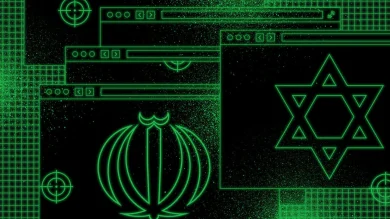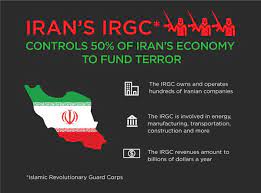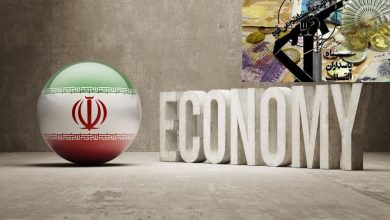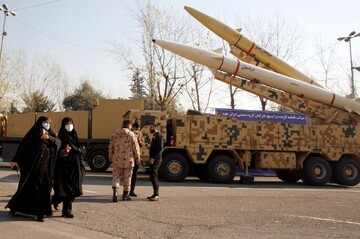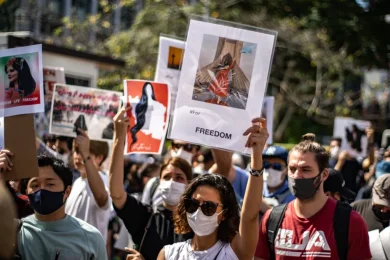The Islamic Revolutionary Guard Corps (IRGC), originally established to protect the Islamic Republic and uphold its revolutionary ideals, has become a dominant force in Iran’s economy. Over the decades, it has built an extensive economic empire, controlling major industries and using its influence to secure financial resources. While the IRGC benefits from this economic control, the effects on ordinary Iranian citizens have been overwhelmingly negative, contributing to corruption, economic inefficiencies, and social inequality.
This report examines the IRGC’s economic activities, their impact on Iran’s economy, and the resulting hardships for its citizens.
1. The IRGC’s Economic Empire
A. Dominance Across Key Sectors
• Oil and Gas Industry:
• The IRGC controls portions of Iran’s oil and gas sector, including extraction, transportation, and refining, often through front companies and no-bid contracts.
• Sanctions on Iran’s energy sector have disproportionately benefited the IRGC, as it has relied on illicit trade and smuggling to maintain revenues.
• Construction and Infrastructure:
• Through its economic arm, Khatam al-Anbiya Construction Headquarters, the IRGC dominates Iran’s infrastructure projects, including roads, dams, and pipelines.
• Its monopolistic control over these sectors has stifled private enterprise and fueled corruption.
• Telecommunications:
• The IRGC has substantial control over telecommunications, using its position to monitor citizens and suppress dissent while profiting from the industry.
B. Smuggling and Black Market Operations
• The IRGC runs extensive smuggling networks, bypassing sanctions to trade oil, fuel, and luxury goods. This generates billions in illicit revenues, enriching IRGC leaders while depriving the Iranian government of taxable income.
C. Use of Front Companies
• The IRGC operates through a network of front companies both inside and outside Iran to conceal its economic activities and evade sanctions.
• These companies secure lucrative contracts and funnel profits back to the IRGC’s military and political operations.
2. Economic Consequences of IRGC Control
A. Corruption and Mismanagement
• The IRGC’s dominance fosters a culture of corruption, with contracts awarded based on political loyalty rather than merit or efficiency.
• Mismanagement of resources and funds in IRGC-controlled sectors has led to poor-quality infrastructure projects and inefficiencies.
B. Stifling Private Sector Growth
• The IRGC’s monopolistic practices crowd out private businesses, discouraging entrepreneurship and innovation.
• Small and medium-sized enterprises struggle to compete against IRGC-affiliated companies that benefit from state favoritism.
C. Economic Inequality
• While the IRGC profits from its economic activities, ordinary citizens face rising inflation, unemployment, and economic instability.
• Wealth disparities have widened, with IRGC leaders enjoying significant privileges while many Iranians struggle to meet basic needs.
3. Impact on Ordinary Citizens
A. Economic Hardship
• Ordinary Iranians bear the brunt of the IRGC’s control over the economy. Inflation, driven by corruption and sanctions, has eroded purchasing power.
• Youth unemployment is particularly high, with limited opportunities for private-sector jobs due to the IRGC’s dominance.
B. Sanctions and Isolation
• The IRGC’s activities have drawn international sanctions, further isolating Iran’s economy and exacerbating hardships for citizens.
• Sanctions targeting IRGC-controlled sectors have led to reduced government revenues, undermining public services like healthcare and education.
C. Suppression of Civil Liberties
• The IRGC uses its economic resources to fund internal security forces, including the Basij militia, which suppress protests and dissent.
• Economic grievances often fuel protests, which are met with violent crackdowns funded by IRGC-controlled wealth.
4. Case Studies of IRGC Economic Mismanagement
A. The Privatization Era
• Under Mahmoud Ahmadinejad’s presidency, state-owned enterprises were privatized, but many were sold to IRGC-affiliated entities at below-market prices.
• This consolidation of economic power by the IRGC deepened inequality and weakened Iran’s overall economic performance.
B. Infrastructure Failures
• The IRGC’s construction projects are often riddled with inefficiencies and corruption, leading to incomplete or substandard infrastructure.
• For example, poorly executed dam projects have contributed to water shortages and environmental degradation in several regions.
5. IRGC’s Role in Sanctions Evasion
A. Smuggling Networks
• The IRGC operates complex smuggling operations to bypass sanctions, exporting oil and importing banned goods.
• These activities enrich the IRGC while ordinary citizens face shortages of essential goods due to sanctions.
B. Cryptocurrency and Alternative Finance
• The IRGC has reportedly turned to cryptocurrency to evade sanctions and continue funding its operations.
• While profitable for the IRGC, these methods further undermine Iran’s financial system and transparency.
6. Global Implications of IRGC’s Economic Control
A. Destabilizing Regional Influence
• The IRGC uses its economic power to fund proxy groups and militias in countries like Syria, Iraq, Yemen, and Lebanon.
• This contributes to regional instability, drawing resources away from domestic needs and further isolating Iran internationally.
B. Hindering International Relations
• The IRGC’s control over the economy makes it difficult for Iran to attract foreign investment or engage in meaningful economic reforms.
• Countries and corporations are reluctant to invest in Iran due to the risks of dealing with IRGC-controlled entities.
7. Recommendations for Addressing the IRGC’s Economic Influence
A. Strengthening Sanctions Enforcement
• Close loopholes that allow the IRGC to evade sanctions through smuggling and front companies.
• Target individuals and entities linked to the IRGC with additional sanctions to disrupt its financial networks.
B. Supporting Private Sector Growth
• Encourage policies that reduce the IRGC’s economic dominance and create space for private businesses to thrive.
• Support initiatives that promote entrepreneurship and innovation among Iranian citizens.
C. Promoting Transparency
• Advocate for greater financial transparency within Iran to expose IRGC-controlled enterprises and limit corruption.
• Support Iranian civil society organizations working to document and expose the IRGC’s economic activities.
Conclusion
The IRGC’s control over Iran’s economy has far-reaching consequences for the country’s economic stability and the well-being of its citizens. While the IRGC enriches itself through monopolistic practices, smuggling, and corruption, ordinary Iranians face mounting economic hardships, reduced opportunities, and systemic inequality. Addressing the IRGC’s influence requires a combination of strengthened sanctions, support for private sector growth, and greater transparency. By limiting the IRGC’s economic power, the international community can help foster a more equitable and prosperous future for the Iranian people.
Join Our Newsletter!
Stay informed with the latest updates, news, and ways to take action in the fight for justice and global security. Sign up now to get updates delivered straight to your inbox!

